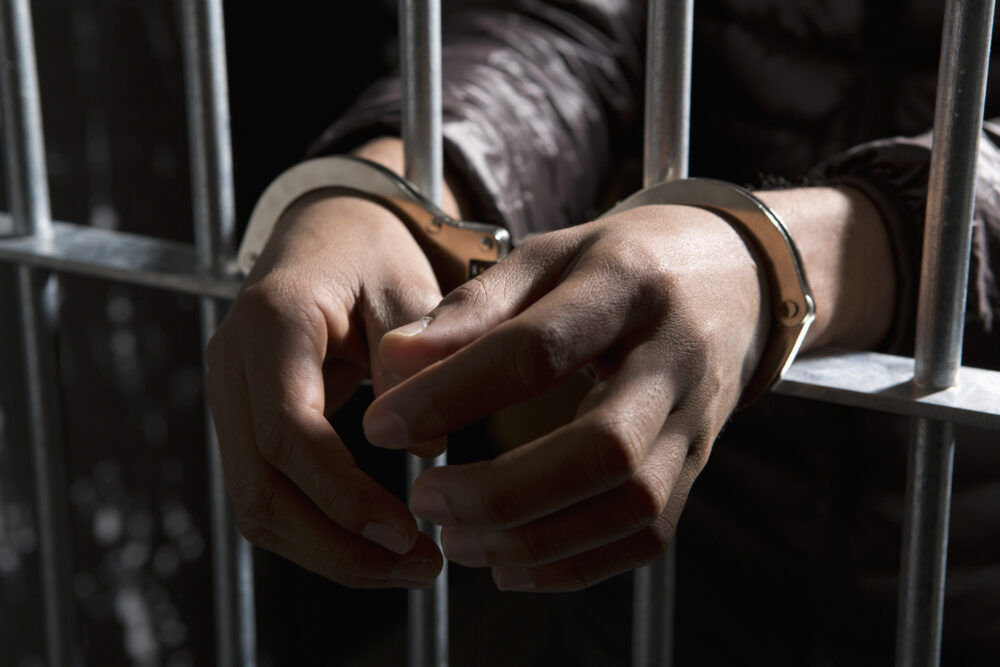U.S. prisons chief insists there’s been ‘visible change’ in the system
Published 4:36 pm Saturday, September 16, 2023

- Louisiana Illuminator photo jail hands jail cell stock photo image clip art
The head of the Federal Bureau of Prisons outlined to the Senate Judiciary Committee how she has sought improvements in the nation’s troubled prison system, and fielded questions from Republicans about transgender inmates.
“Developing meaningful change throughout the agency is not something that happens in a moment,” Colette Peters, the director of the Federal Bureau of Prisons, said in her opening statement.
“Change requires focus, effort, and persistence over time. I believe our efforts over the last year have generated visible change, and our work continues.”
Peters said that in the past year, she has visited more than 20 facilities and has worked to address employee misconduct and “hold those who engage in misconduct accountable.”
Peters testified before the same committee nearly a year ago. During that hearing, she affirmed that staffing issues and sexual harassment at facilities would be priorities for her leadership at the agency.
Wednesday’s hearing also came the day after several senators, including both of West Virginia’s, Joe Manchin III, a Democrat, and Shelley Moore Capito, a Republican, wrote to Peters and Attorney General Merrick Garland asking them to investigate serious allegations of misconduct of staff and mistreatment of inmates at a federal prison in Bruceton Mills, West Virginia.
During the Senate session, Democrats focused on what changes BOP has made, particularly in light of investigations that have found incarcerated people were sexually assaulted by staff, and what resources the agency is providing for incarcerated people, such as prenatal care.
Nearly every Republican questioned Peters about transgender inmates, specifically asking about transgender women in prisons that house incarcerated women.
Peters said there are about 1,700 incarcerated people who identify as transgender. She said that there are fewer than 10 transgender incarcerated women who are in facilities with incarcerated women. There are nearly 158,000 incarcerated people in BOP facilities, according to BOP statistics.
The GOP senators who asked Peters about incarcerated transgender women were the top Republican on the committee, Sen. Lindsey Graham of South Carolina, and Sens. Thom Tillis of North Carolina, Tom Cotton of Arkansas, Ted Cruz of Texas and Mike Lee of Utah.
Tillis pressed for data on how many incarcerated transgender people received medical care for their gender-affirming care. He cited the specific case of Donna Langan, who has become the first transgender person to receive gender-affirming surgery in federal prison.
Peters said she was not familiar with the case cited by Tillis.
“You’re going to be hard-pressed, for me, to find someone who was convicted of a crime to then receive taxpayer dollars to allow this transition when we’ve heard about all the limited resources for the hardworking people in the Bureau of Prisons,” Tillis said.
The Democratic chair of the committee, Sen. Dick Durbin of Illinois, criticized those Republicans bringing up transgender care.
“We’re talking about the safety of all prisoners, regardless if they are cisgender or going through transitions,” he said.
Prison reforms
Sen. Jon Ossoff, Democrat of Georgia, said when Peters came into her positions, she came in with a reputation “as a reformer.”
Ossoff led an investigation on the Permanent Subcommittee on Investigations, where the panel found that incarcerated women were sexually assaulted in two-thirds of BOP institutions. He asked what steps BOP has taken to end sexual assaults of incarcerated people.
Peters said there was a “cultural assessment at all of our female facilities.”
“The most important thing that we’ve done is work to hold those who have engaged in that abuse accountable,” she said.
Durbin said that he was concerned about the use of solitary confinement in federal prisons, expressing his disappointment that since Peters came into her position, the numbers of those incarcerated in solitary confinement have not changed.
“We both know that locking someone in a cell for more than 22 hours a day will not make them a good neighbor,” he said. “Since our oversight hearing last September, we have seen no decrease in the number of people in solitary confinement in federal prisons.”
Sen. Amy Klobuchar, Democrat of Minnesota, asked about prenatal care for incarcerated people who were pregnant.
Peters said that in February of last year, guidance was issued so that staff is “careful not to restrain pregnant or postpartum women,” and that “women have the opportunity to bond with their children.”
She also mentioned there is a partnership in Washington state that has set up a parenting program.
Klobuchar also asked about those who have high risk pregnancies and if they are transferred to facilities that can provide them care. Peters said that there is a special facility to care for those with high risk pregnancies.
Gangs and contraband
Sen. Chuck Grassley, Republican of Iowa, pressed Peters about security measures to stop contraband and prevent gangs from engaging in illegal activity in federal prisons.
He asked Peters if she thought increased penalties for contraband would be an appropriate deterrent.
“I think that every tool needs to be considered in order to combat this significant (issue) of contraband, and I think this would be an additional tool in our toolbox,” she said.
Grassley also asked Peters if she knows “whether our government is sharing information on our prison layouts,” with foreign governments, such as Mexico.
Peters said she would look into it and let him know what she finds.
“We would want those floor plans very secured,” she said. “A release of anything like that would be a serious security concern.”
Sen. Marsha Blackburn, Republican of Tennessee, also expressed concern about the use of drones to smuggle contraband into prisons.
Peters said it is an issue and that there are several technological maneuvers BOP engages in, such as jamming cellular signals and tracking cellular communications in certain locations.
“With drones, the technology is constantly changing, and we’re just trying to stay ahead of that changing technology,” Peters said.





